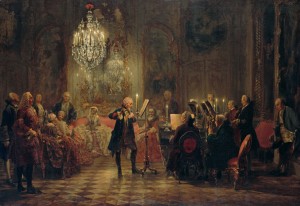think global, act local
I was introduced to the music of living American composer Daniel Dorff by my (young) children, of all people.
If you have kids, and you have a car, you’ve probably been there. A long car ride (and by “long” I mean “more than 30 seconds”), and the whining begins: bathroom, bored, s/he touched me, hungry, s/he wiped boogers on me. So as the parent, you learn important skills in distraction, and put together a literal bag of tricks in an attempt to retain not only a sliver of sanity, but also your will to live. In my trick-bag are many CD’s of music; many of them are just slightly less annoying than the sound of whining children, but hey, the lesser of two evils, right?
Then there was a Daniel Dorff CD: a handful of children’s tales set for narrator and orchestra. How wonderful to find something that the kids and parents could enjoy together?
While I don’t really know him personally, I admire Dorff because, while his music has been played by major orchestras and ensembles (thinks global), he’s a guy who clearly does not suffer from a big head (acts local.) Besides composing, is vice president of music publisher, gives lectures, plays clarinet, volunteers for professional guilds, helps to develop music software, among (I imagine) many other things. And his list of compositions shows that he is writing for people he knows, rather than untouchable superstars (though his pieces have been played by them as well.) So, it turns out that famous composers can be normal, nice, people!
Here’s a short movement of a different piece that I believe captures Dorff’s sound and writing style.


Recent Comments